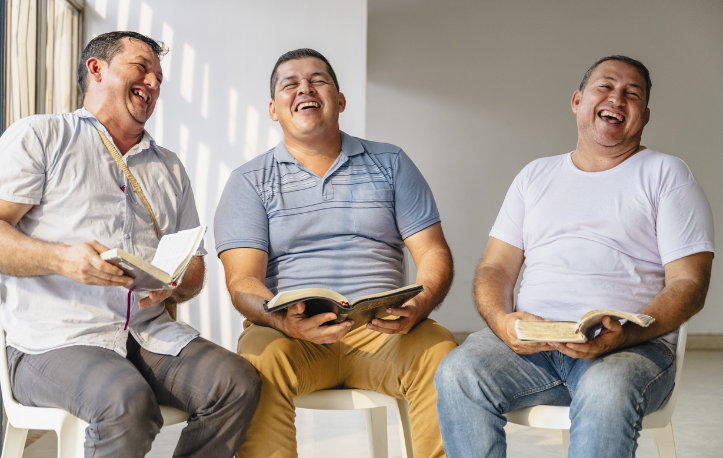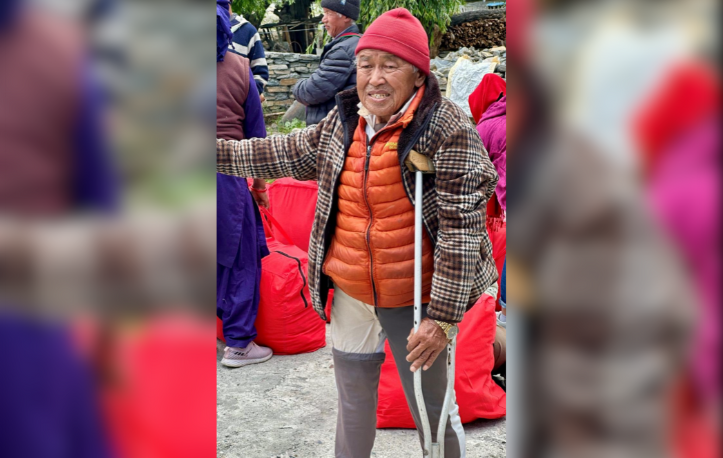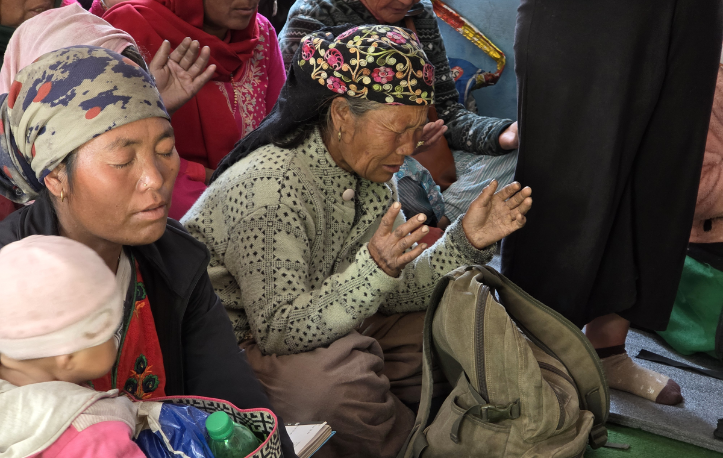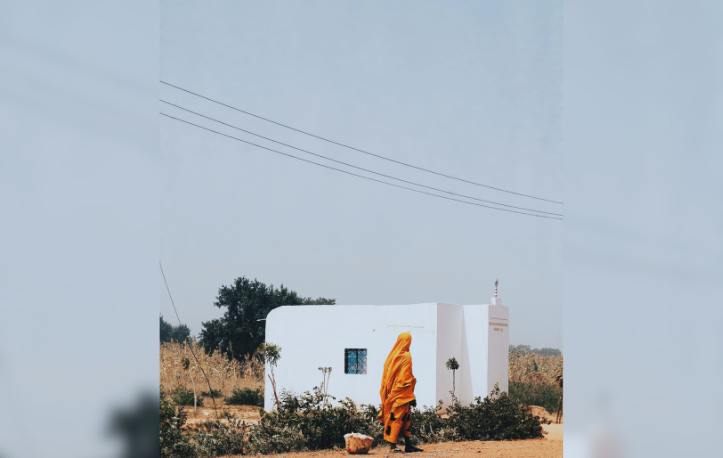Pedro, Juan Carlos and Jorge seem like three average men who love their wives and children. They clearly enjoy one another’s company, randomly breaking out in song, cracking jokes and laughing heartily. But the foundation of their relationship is more profound than it may at first appear. They are brothers, in both the familial and spiritual sense, who are united by a common purpose: advancing God’s kingdom in one of the most dangerous places on earth to follow Christ.
The brothers grew up in Arauca, a ‘red zone’ controlled by guerrilla activity along the border with Venezuela. The region has long been known for violence and drug trafficking by two Marxist groups — the Revolutionary Armed Forces of Colombia (FARC) and the National Liberation Army (ELN). When the brothers were growing up, most young people were expected to join one of the militant groups, and they were no exception.
“It was either ELN or FARC, or you were a part of the communist group,” said Juan Carlos, “but you had to belong.” Somewhat surprisingly, they chose different groups: Jorge joined the FARC, Pedro joined the ELN and Juan Carlos joined the Communist Youth (JUCO).
The oldest brother, Jorge, who is now 51, was the first to join. He enlisted with the FARC when he was 16 years old and quickly rose through the ranks to become a demolitions expert. His primary job was to make bombs and place them at locations designated for attack, including churches. This gained him a fearsome reputation among local Christians in the area.
“I was very scared of him,” said Juan Carlos’s wife, Mayerlin, whose father was a pastor in their town. “He was going to kill my dad because my dad would preach to the FARC.”
Mayerlin’s fears were not unfounded. “I almost blew up a pastor that was crossing a bridge,” Jorge said. “I almost killed her dad, who was the pastor.”
While Jorge was gaining notoriety in the FARC, Juan Carlos was advancing in JUCO, the youth arm of the Colombia Communist Party. He was secretary of the organisation at age 17, when he met Mayerlin, who invited him to an evangelistic outreach. During one of the services, Juan Carlos believed he sensed God speaking directly to him.
“God gave me a word, personally, that I had three days to find Him or I would die,” Juan Carlos said. At the time, he said he felt more fear than conviction. But three days later, as he was walking past a snack bar, some men inside shot at him thinking he was someone else. People screamed as bullets struck the ground next to where he stood.
Then Juan Carlos remembered the message he had received during the church service. “I could see that God kept me that day, because they almost killed me,” he said. “That night, I accepted the Lord. I came to Christ.”
After placing his faith in Christ, Juan Carlos faced a dilemma. “When I accepted Christ, I was still part of the young communists,” he explained, “and that brought repercussions because are you serving God or are you staying in the organisation? I took the position to retire and walk in the ways of the Lord.”
But walking away wasn’t so easy. The organisation’s leaders told him that if he refused to continue serving in an active role, he would have to leave the area or be killed.
“As secretary of the organisation, I represented someone who [knew] secrets,” Juan Carlos said. “They told me they would not be responsible for my life.”
When Juan Carlos refused to continue serving in the organisation, his former colleagues retaliated against churches in the area. “They came and chained the doors up,” he said, “no churches were functioning for a year. There were no services when I became a Christian.”
Though Mayerlin and her family suffered because of the closures, the gospel didn’t. Local Christians adapted and met in homes throughout the town.
“I was hungry,” Mayerlin recalled. “My dad was a pastor, and we had no food to eat because we were not allowed to meet or pick up offerings. But God used that persecution and made the church grow. When they closed it, we couldn’t fill half the church, and then when we opened it again, we [couldn’t fit everyone inside] the church.”
As the church grew, so did the mutual affection between Juan Carlos and Mayerlin. With their eventual marriage, Mayerlin’s dad, Pastor Guillermo, began discipling Juan Carlos and urging him to share the gospel with his brothers. Juan Carlos decided to share his faith with Pedro, the ELN member, first.
Working for the ELN as a courier gave Pedro special privileges, including the company of women, so he was not initially receptive to the Good News his brother was proclaiming. Since the pastor’s daughter was already spoken for by his brother Juan Carlos, he didn’t believe the church had much to offer.
“I told my brother, ‘There are no more daughters here; the pastor has no more daughters’,” Pedro recalled, laughing. “‘What am I going to go get there?’”
Through Juan Carlos’s faithful and relentless witness, Pedro eventually placed his faith in Christ. “What convinced me is the way [the pastor] talked and my brother Juan Carlos’s example and persistence,” Pedro said. “He was an example that caused curiosity.”
Then Juan Carlos, along with Pedro and Pastor Guillermo, turned their attention to the FARC member, Jorge. They invited him to attend a service, and one day he agreed.
“I started going to the church, and God began to deal with me,” Jorge said. “The pastor told me, ‘You are going to serve the Lord. Even if you go back into the life of sin today, one day you will serve the Lord.’ That word was a seed, and one day in the service without the pastor’s knowing, I felt the need to look for God. On that day, I knew the Lord.”
Since coming to know Christ, the three brothers have spent the last two decades proclaiming the gospel. “We have been able to save many from going to the FARC, from going down that road,” Jorge said. “I have the experience and the authority to tell them that is not the correct way, [because] I am from that way. It has allowed us to evangelise, and there are a lot of people in our church that have worked with the group, but today they serve the Lord.”
As others in the area have turned to Christ, the brothers have experienced opposition from those hostile to the gospel. Pedro explained that when families come to faith in Christ, they stop participating in guerrilla activities. When the guerrillas learn that the families have left them because they have become Christians, the guerrillas then target the pastors.
“Whose fault is it [that families are leaving the guerrillas]?” Pedro asked rhetorically. “It is the pastor’s fault, the gospel. The guerrillas always have to be enemies of the gospel.”
Pedro’s church is located across the road from a guerrilla camp, so every sermon he gives is within earshot of the guerrillas. Recently, the guerrillas shot at a canoe carrying passengers upriver to Pedro’s church.
On another occasion, armed guerrillas entered his church. When a pastor in attendance at the service later asked Pedro how he could preach under such complicated circumstances, Pedro said, “You have to be very Christ-centred. It is not easy, but there is a lot of work to do.”
Pedro said the FARC placed about 550 pounds of explosives around the church one day and then interrupted the service to warn those inside. After the church members had taken shelter at a nearby farm, the militants tried to detonate the explosives. But something surprising happened.
“When they went to blow the bomb,” Pedro said, “they pulled the pin and it didn’t pop! It never went off, so they put it on a truck and drove it six kilometres away. At 5am the next day, they pulled the pins and it blew up. From six kilometres away, I lost two of the lamps in my truck. My son suffered a little trauma, and big sounds still really bother him because they have [exploded] so many bombs in that area.”
Pedro said he believes God protected his church and congregation from the bombs. “We have so many big testimonies like this,” he said. “I’ve understood that God takes care of things.”
While grateful for God’s protection, Pedro, Juan Carlos and Jorge know that their gospel work puts them at great risk in the rebel-controlled area where they live and work. In early 2024, a friend told Juan Carlos that militants were planning to kidnap him and tie him up in the jungle for three days. When they want to kill someone, they sometimes tie the person up in the jungle and put blood on him or her to attract wild animals.
“I know I make some people in the place uncomfortable,” Juan Carlos said. “Like many pastors here in this area, we now have restrictions: No services at night, no vigils. If we are going to invite someone to the region, we have to inform [the guerrillas] who they are, where they are from.”
Pedro and Jorge have also received warnings and restrictions on church services in their areas. Pedro’s life has been threatened, and several of his church members have lost loved ones at the hands of the guerrillas.
“The majority of the people there have been touched by the violence,” he said. “The musician of the church … they killed his dad. My father-in-law and mother-in-law were killed by ELN.” Pedro is also concerned about his teenage son being recruited to join a rebel group; they have offered him money and material possessions to join them.
Still, Pedro and his brothers remain faithful to the calling they each received to proclaim the gospel of Christ in this dangerous place. They view the church as a beacon of hope amid the violence.
“The guerrillas are in charge of all the city,” Pedro said. “They are in charge of any civil organisation, military organisation in the area. The only thing they have not been able to control is the church. They’ve tried to close my church and I said, ‘I can’t do that; I am not closing the church because the church has no doors.’ The church has become a refuge.
“It is uncomfortable to live here. There are mosquitoes, there is mud, there is no light, there is no freedom. Sometimes I am ready to throw in the towel; I even have my bags packed. But my wife is stronger than I am, and God gave her a word and said, ‘You will be a blessing to many’. That is why we are there.”
Jorge shares his brother’s resolve. “Today I remember the word God has written in the Bible that says, ‘For those who love the Lord, all things work together for good’,” Jorge said, recalling Romans 8:28. “We have had this experience. I think that the Lord in all of this does the work, and we are living to serve [the guerrillas] so they can know the ways of the Lord.”
“We are the three musketeers of Arauca,” he added, laughing. “And I know we have brothers praying for us around the world. Your prayers are what keep us in these hard places.”




Submit a Prayer